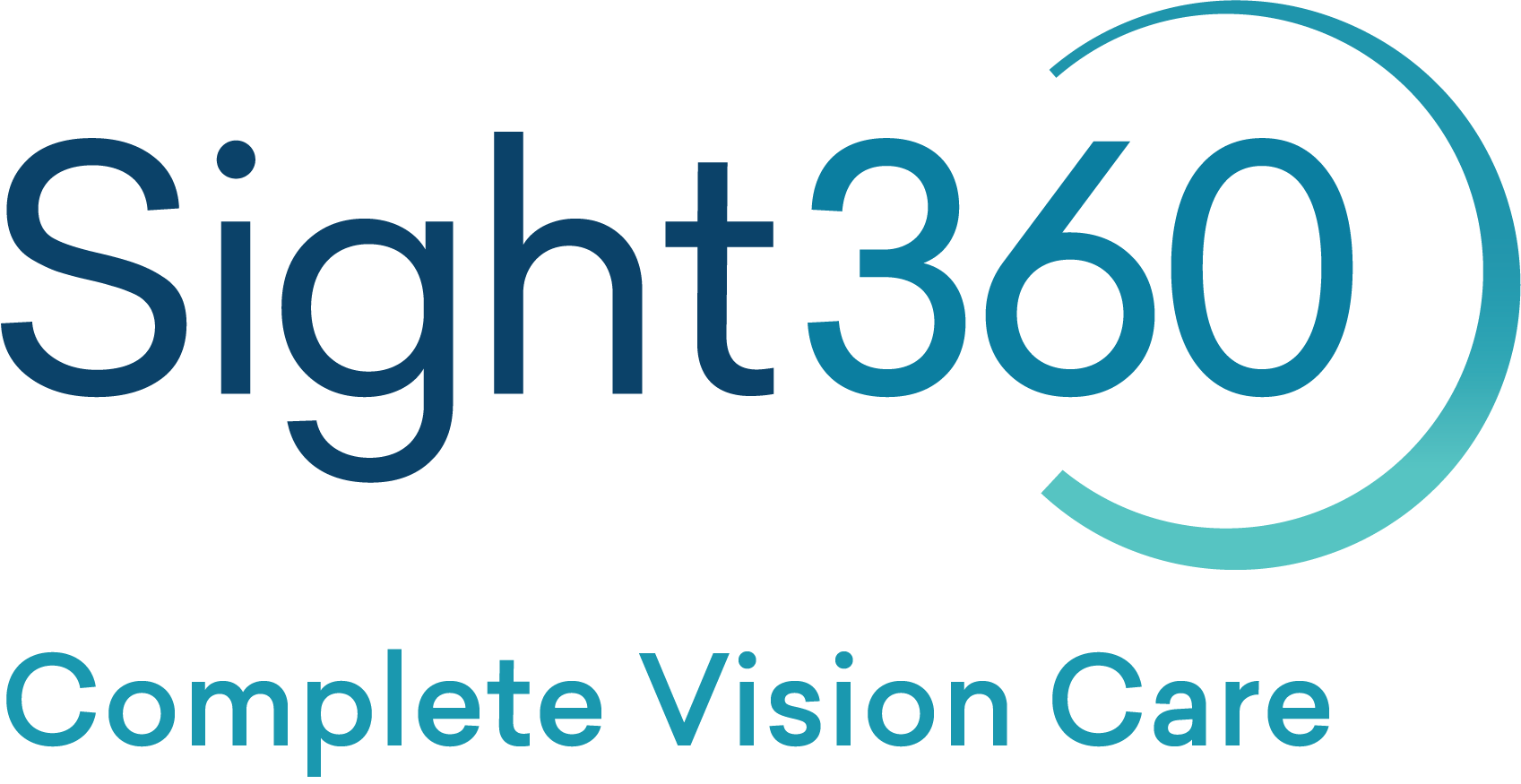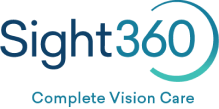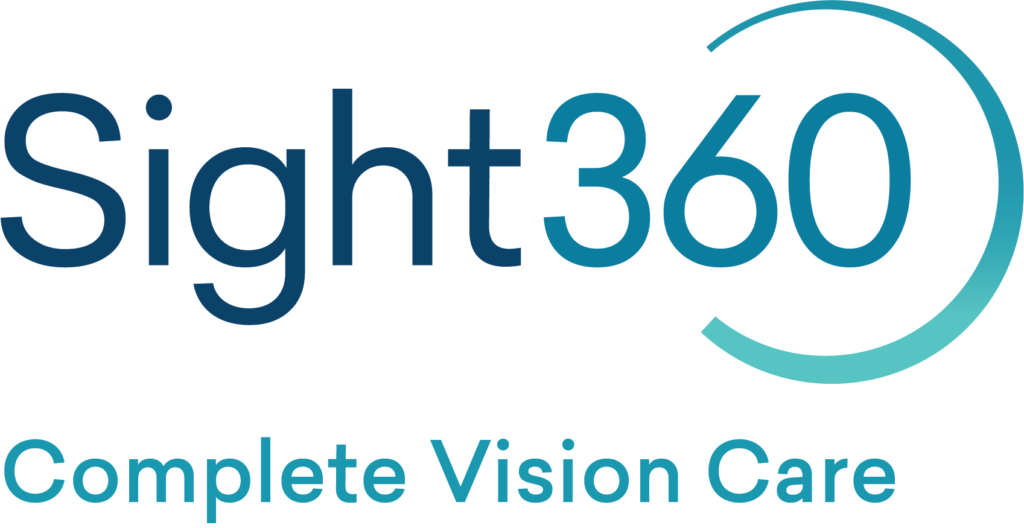Your eye exam is essential for your eye health and vision. Your eye doctor can identify eye problems, treat diseases, and prescribe contact lenses and glasses. With the importance of eye exams, how often should you book your appointments?
Continue reading to learn more about eye exams, including why they’re important, what happens during your exam, and how often you should have one.
The Importance of Regular Eye Exams
Your eye exam is more than a simple test of how well you can see—it involves an in-depth look at your eyes and how they work. The tests your eye doctor completes during your exam can help diagnose many common eye problems, including:
- Difficulty seeing clearly or having blurry vision (refractive errors)
- Glaucoma
- Cataracts
- Diabetic retinopathy
Early detection is crucial when addressing eye conditions. Your doctor can treat a problem the sooner they identify one, increasing your chance of recovery and avoiding additional damage to the eyes.
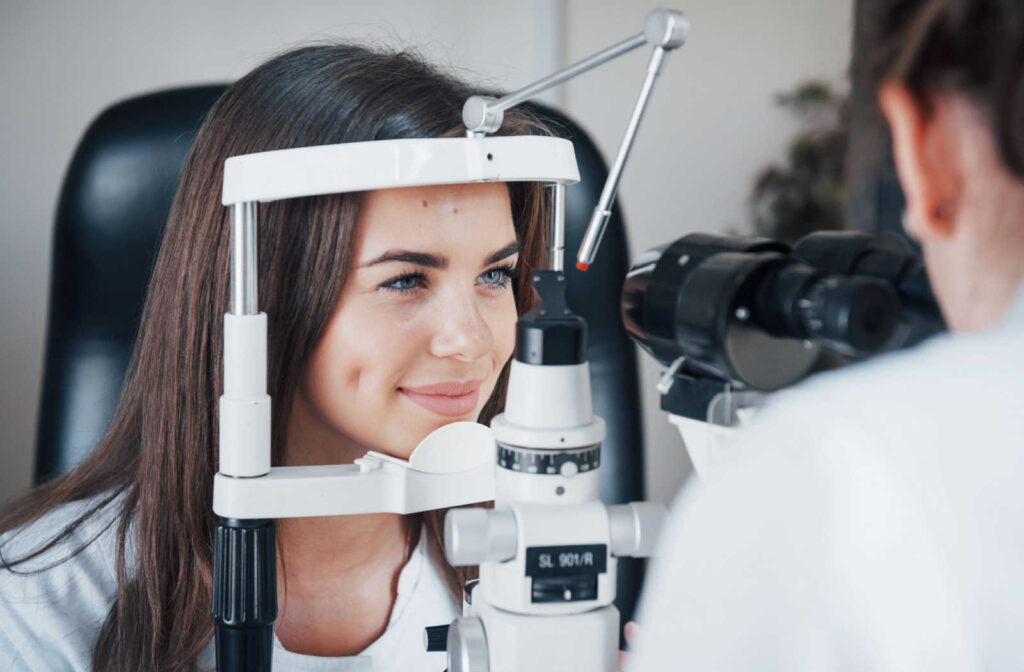
How Often Should Someone Have an Eye Exam?
Many people assume you only need to see your eye doctor when you can’t see well or have a visible problem. The truth is that you should have regular eye exams even if you can see well. These exams are important for assessing how your eyes function and if you have a problem you may not be aware of.
According to the American Optometric Association, people of all ages should have regular eye exams. However, the frequency of these exams may vary, depending on your age and eye health.
Adult & Seniors
For older adults 65 and older, an annual eye exam is ideal. A yearly visit can help your doctor identify potential changes in your vision and eye health.
Children
Your child should have eye exams on the following schedule:
- Their first exam is between 6–12 months
- At least one exam between ages 3–5
- Annual eye exams from 6–18
Reasons for More Frequent Exams
You may need to see your eye doctor more frequently depending on your eye health and vision. Conditions like diabetes can affect your vision, and anyone with diabetes should have an annual eye exam to assess their vision.
Additionally, you may need more frequent eye exams if you’re at risk of eye diseases like glaucoma, retinal issues, or other eye problems. Factors increasing your risk of eye-related issues include:
- Family history of eye disease
- Genetics
- Systemic health conditions
- Visually-demanding jobs
- Prescription or nonprescription drugs with eye-related side effects
- Visual function in only one eye
- Contact lens use
- Eye surgery or previous eye injury
- High or progressing refractive errors
Always listen to your eye doctor’s recommendations regarding your regular eye exams. They can assess your vision and determine how often you should book your appointments.
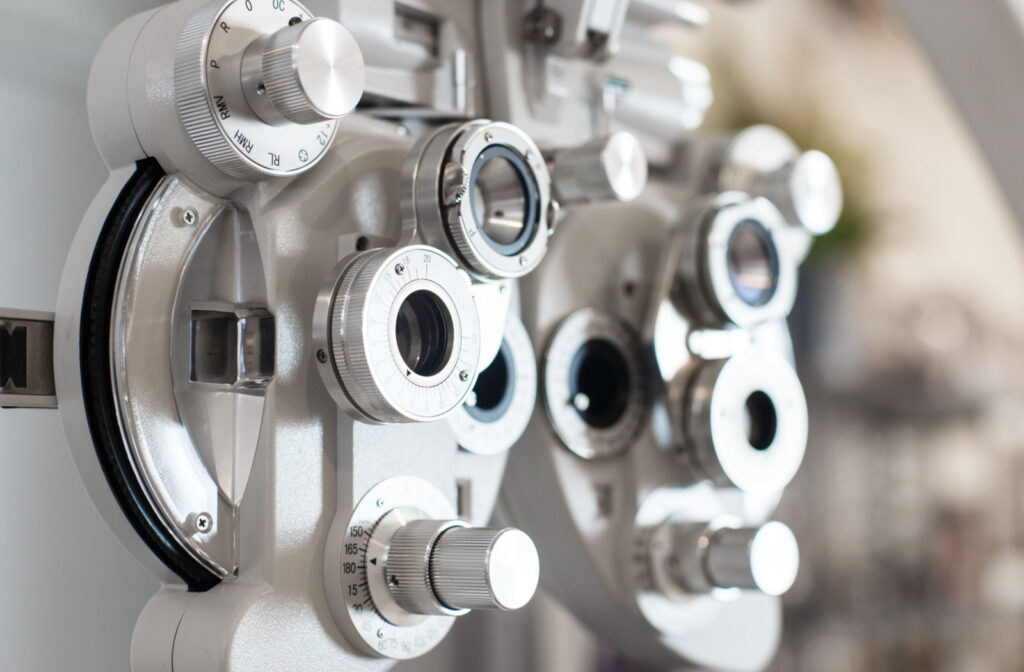
What Happens During Your Eye Exam?
Now that you know how often to book your eye exams, what happens during them?
An eye exam involves a series of tests to evaluate your eye health and vision. Your eye doctor gets a complete picture of your ocular health to help identify problems as early as possible, protecting your sight.
There are several steps involved in your eye exam, including:
- Patient history: An eye exam typically begins with a discussion about your eye health & medical history. Your doctor will ask about previous eye or health conditions, medications you take, work, day-to-day lifestyle, & your family’s medical history.
- Preliminary tests: Preliminary testing is common at the beginning of your eye exam, helping assess different aspects of your vision. Your eye doctor uses these tests to get an impression of your eye health, such as depth perception, color vision, & eye muscle movements.
- Visual acuity: Your eye doctor will test your visual acuity to determine how well you can see. You read off an eye chart to help evaluate your vision, helping your doctor identify if you need corrective eyewear.
Eye health evaluation: A thorough assessment of the eye’s internal structures helps your eye doctor identify early signs of eye disease. The earlier they find these problems, the sooner they can provide treatment.
Book Your Next Eye Exam at Sight360
Regular eye exams are essential for protecting your eye health and vision. Our eye doctors can complete a comprehensive evaluation of your ocular health, helping identify potential problems as early as possible. Our optometrists have your eye health and vision covered—all you need to do is book your appointment.
Contact us at 866.824.4280 when it’s time for your next eye exam. With 16 locations in Tampa-St. Petersburg-Clearwater metropolitan area, we have multiple convenient locations to help assist with your eye health.
